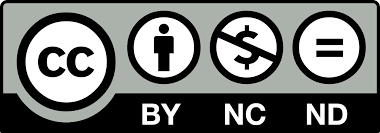Is the Minimum Wage Detrimental to the Economy?
Anna Krajewska
Institute of Economics, University of LodzStefan Krajewski
Institute of Economics, University of LodzAbstract
The minimum wage in Poland is relatively low. It amounts only 1,600 PLN in 2013. Therefore, it is no surprise that the trade unions have been making efforts to have it raised to the level of 50% of the average salary. However, this has been met with staunch resistance from employers. The liberal model of the economy, which dominates in Poland, favours employers. Moreover, the attitude of the government, politicians, the media, as well as many scientists towards this is not favourable. These are the objections usually raised against the increase of minimum wage: - raising the minimum wage entails unemployment growth; - an increase in the minimum wage entails an increase in the average pay, with a consequent increase in the inflation rate; - the amount of the minimum wage and its growth rate is frequently the basis for an index-linked pay increase in the budget institutions and some social benefits, which results in an increase in fixed budget spending, which is not justified economically; - the minimum wage level, regarded by employers as too high, results in the practice of paying workers outside the official payroll, thereby extending the grey area; - an increase in the minimum wage is a threat to businesses, especially to micro-enterprises, which operate on the brink of insolvency and may face bankruptcy; - an increase in the minimum wage raises the cost of labour and makes businesses less competitive. This paper, in its later part, provides arguments against the allegations. There is a one-sided view of the issue of the minimum wage in Poland. Wages are regarded exclusively as an element of the cost of labour and, as such, they should not increase as this is detrimental to entrepreneurs and to the economy. Such analyses disregard the social and economic (in a broad context) aspects of having a minimum wage.
Keywords:
minimum wage, unemployment, inflation, labour marketReferences
Auerback M. 2012. Five reasons why we should raise the minimum wage, http://www.salon.com (2012/07/30/top 5 reasons... ) (access: 06.05.2013).
Badania ankietowe rynku pracy. Raport 2012. 2012. Instytut Ekonomiczny, NBP, Warszawa.
Begg D., Fisher S., Dornbusch R. 1993. Ekonomia. Tom 1. PWE, Warszawa.
Borkowska S. 2005. Płaca minimalna a ograniczanie ubóstwa. In: Polityka społeczna. Wybrane problemy. IPiSS, Warszawa.
General government expenditure by function. 2012. http://appsso.eurostat.ec.europa (access: 27.07.2012).
Golinowska S. 2005. O przyczynach bezrobocia i polityce jej zwalczania. Głos w debacie. In: Polityka społeczna. Wybrane problemy. IPiSS, Warszawa.
Guz J. 2011. Płaćcie nam godziwie. Gazeta Wyborcza, 19.08.2011.
Jacukowicz Z. 2007. Analiza minimalnego wynagrodzenia za pracę. Studia i Monografie, IPiSS, Warszawa.
Kamerschen D.R., McKenzie R.B., Nardelli C. 1999. Ekonomia. Fundacja gospodarcza NSZZ "Solidarność", Gdańsk.
Low-wage earners as a proportion of all employees. 2012. http://appsso.eurostat.ec.europa (access: 10.12.2012).
Płaca nierejestrowana w Polsce w 2010 roku. 2011. GUS, Departament Pracy, Warszawa.
Rocznik Statystyczny Pracy. 2010. GUS, Warszawa.
Rocznik Statystyczny Rzeczypospolitej Polskiej. 2010. GUS, Warszawa.
Rocznik Statystyczny Rzeczypospolitej Polskiej. 2012. GUS, Warszawa.
Sloman J. 2001. Podstawy ekonomii. PWE, Warszawa.
Wyźnikiewicz B. 2012. Wzrost minimalnego wynagrodzenia jest szkodliwy dla gospodarki. Gazeta Wyborcza, 06.12.2012.
Institute of Economics, University of Lodz
Institute of Economics, University of Lodz
License
An Author declares that his paper has not been published before (under the same or another title, or is a part of another publication) and does not infringe copyrights of other persons**. At the same time, the Author transfers to the Publisher the exclusive right to publish and to circulate this work in print in the form of a non-serial journal publication and in a form of an electronic publication.
The journal is available on Creative Common license CC-BY-NC-ND






